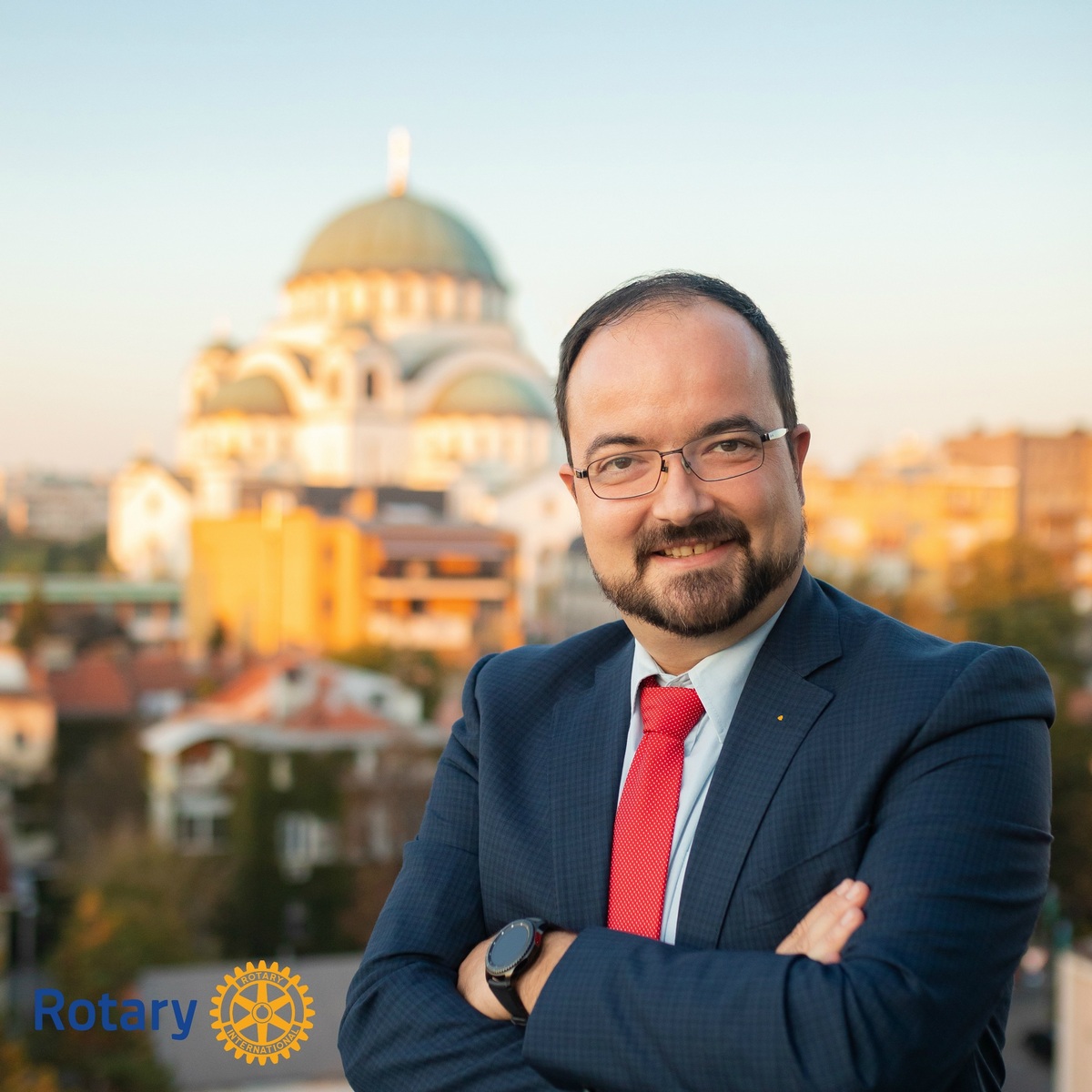Over the past three years, Rotary clubs have provided $1.5 million through projects aimed at supporting our country

This year, the Rotary community celebrated 95 years since the establishment of the first Rotary club in Serbia. On this occasion, we are speaking with the Governor of Rotary District 2483, which covers Serbia and Montenegro, Nikola Božić.
Nikola Božić is the director at the Faculty of Applied Ecology in Belgrade, senior education consultant at the “Franklin Covey Serbia”, and expert in space diplomacy at Diplo Foundation. He was decorated by the French Republic with the medal as the knight in Order of Academic Palms for his activities in scientific and educational cooperation between Serbia and France.
How did you commemorate such an important anniversary?
We marked our two significant anniversaries, the 95th anniversary of the first Rotary club’s establishment and the 30th anniversary of Rotary’s re-establishment in our region, with a ceremonial program in February. This month also commemorates the founding of the entire Rotary organization in 1905. The first Rotary club in the world was established in Chicago in 1905, while the first Rotary club in Belgrade was founded in 1928. However, Rotary clubs ceased to operate during World War II and were re-established only between 1992 and 1995, following the revival of the civil sector.
What is more important than the anniversary itself is our contribution to the development of the local community. Over the past three years, Rotary clubs have provided $1.5 million through projects aimed at supporting our country. These projects have primarily focused on providing essential equipment to hospitals, maternity wards, and in vitro fertilization centers, as well as modern ICT and STEM educational equipment for schools, and furniture for kindergartens.
This support to our communities is significant. How did you achieve it?
Rotary clubs conceptualize the projects, while financial support comes from our friendly and partner Rotary clubs worldwide, as well as the international Rotary Foundation, which provides the majority of the funds.
The first Rotary club in Belgrade was founded in 1928
In the case of our country, these projects have been supported over the past three years by the United States Agency for International Development through the “Hearts of Europe” program. Therefore, we recently discussed these results with the U.S. Ambassador to Serbia, His Excellency Christopher Hill, and presented him with ideas for the future humanitarian projects.
What are some of the most valuable projects you have successfully implemented?
We are particularly proud of our international projects, through which numerous schools have received mBot robots and educational drones. A few years ago, we also donated laptop computers and other ICT equipment to the schools. Thanks to these projects, we have created a stimulating environment for quality STEM education for young students, enabling them to gain scientific, technological, engineering, and mathematical knowledge. We should not forget the involvement of Rotary clubs in several cities during the collective fight against COVID-19.
Education seems to have been a focus of your term as the Governor of Rotary District?
Indeed. Perhaps it’s due to my professional orientation, but also because supporting education is a guarantee for the future.
As an example of investment in collective memory, science, and education, we are particularly proud of our donation to the Belgrade Botanical Garden, which enabled the creation of a monument dedicated to Jevrem Obrenović, after whom this institution is named. The monument was unveiled during the celebration of the 169th anniversary of the Faculty of Biology in Belgrade in September 2022. With this gesture, we emphasized the importance of academic institutions and left a lasting trace of Rotary’s support to the community in which we live.
Your Rotary year is coming to an end, but that doesn’t mean the end of support where it is needed.
That’s correct. In Rotary, all positions, both in clubs and governorships, as well as the President of Rotary International, last for one year. This allows us to constantly receive new energy and ideas. However, we all remain dedicated to our mission and supporting the local community.
Personally, I am proud to have served as Governor during the year of the first woman to lead Rotary International, Jennifer Jones. Her leadership brought new energy and a different perspective. She contributed to making us energetic and proactive here in Serbia and Montenegro. Now we pass on the energy to our successors.